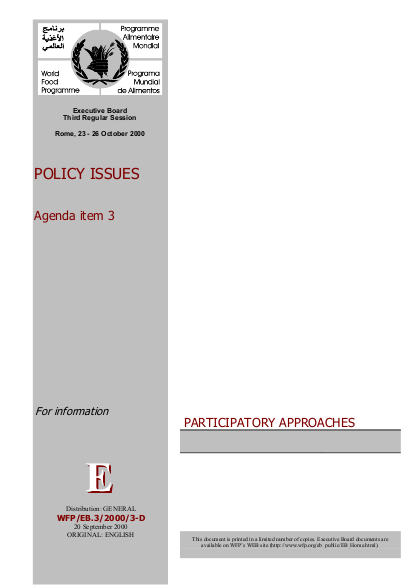
The issue of people’s participation has gained considerable momentum among governments, donor agencies and international organizations, and was strongly reaffirmed in the World Food Summit’s Plan of Action (FAO, 1996). Experience has shown that the inclusion of civil society through participatory approaches is a prerequisite for poor people to contribute their knowledge, skills and resources to processes that influence their lives.
However, despite significant efforts by agencies and governments alike, there are various factors that impede the adoption of participatory approaches at both the national and local levels. These include the absence of a national policy; legal frameworks to guard against discrimination; number of trained staff; time and financial constraints; and insecurity. WFP’s Mission Statement stipulates that the Programme will “ensure that its assistance programmes are designed and implemented on the basis of broad-based participation”.
